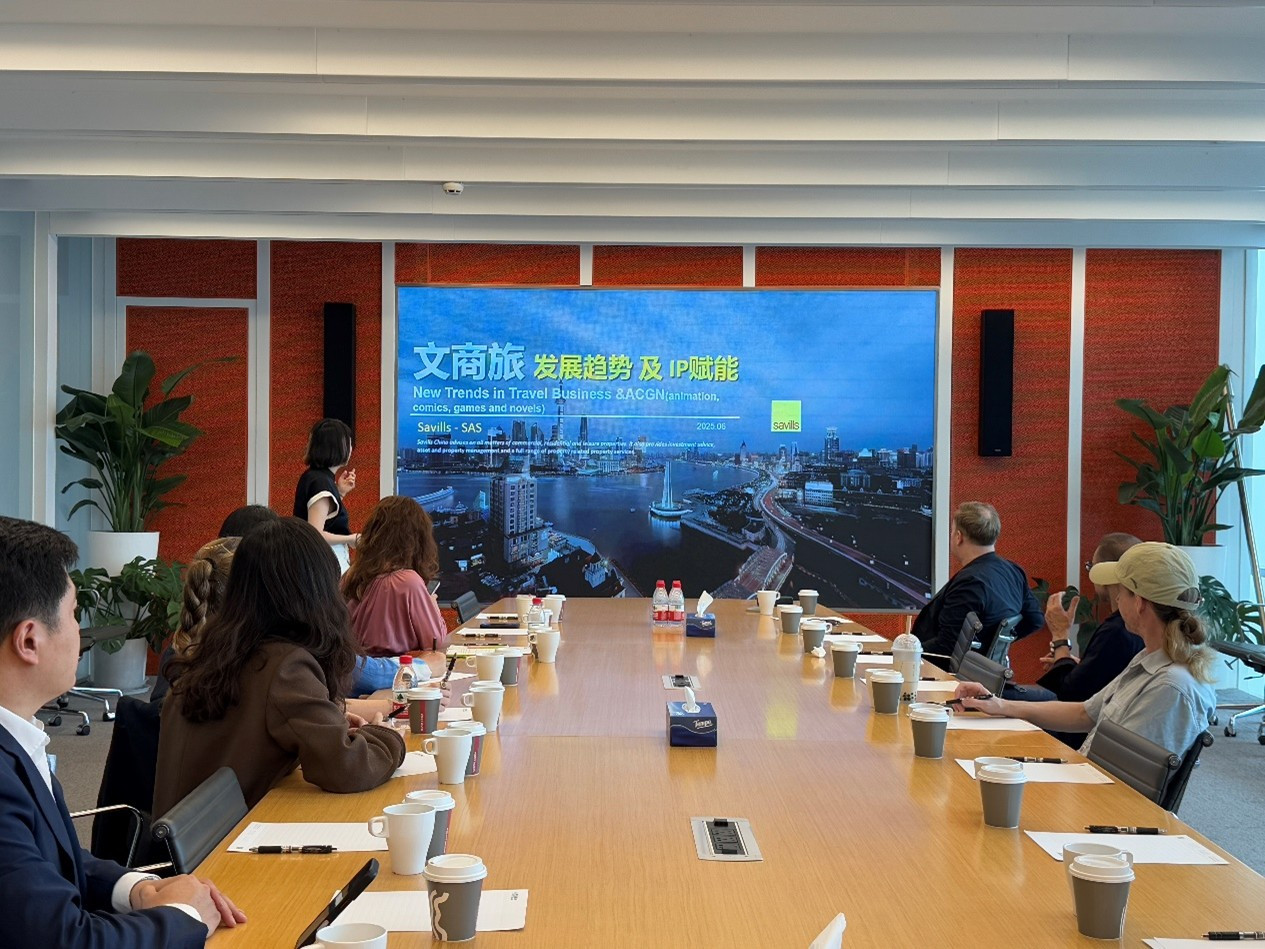On 25 June 2025, the British Chamber of Commerce Shanghai (BritCham Shanghai) recently organised a special site visit to the West Bund development, followed by an engaging roundtable discussion titled “Renewal Strategy for Culture, Business, and Tourism: Breaking Through with Differentiation.”

The event gathered participants from member companies, including Savills, More Design Office, Aden, INTO University, IHG, Trajectry, KD Theatrics, and Modern Water, with unique insights into how Shanghai is reinventing urban spaces through innovative approaches to culture and commerce.
The visit marked BritCham Shanghai’s first formal engagement with the state-owned West Bund Group, establishing a promising new channel for members to connect with one of Shanghai’s flagship urban renewal projects.
The first speaker, Candy Zhu, Director of Strategy Advisory Service at Savills, shared an insightful overview of the recovery and dynamic growth in China’s cultural and tourism sectors, highlighting how visitor numbers and revenues have surpassed pre‑pandemic levels across national holidays, with diversified consumer demands reshaping the industry. From family trips and elder‑friendly tours to niche interests, the trend reflects a shift towards more personalized, experience‑driven offerings that appeal to both younger and older generations.
She also emphasised the crucial role of the ACGN (animation, comics, games, and novels) sector in shaping new consumer landscapes. Supported by favourable policies and advances in digital technology, domestic IPs have rapidly matured, creating robust ecosystems that drive merchandise sales, interactive spaces, and cross‑industry collaborations.
New retail spaces like ZX Funplex, alongside trend‑driven IP activations and immersive themed environments, have further strengthened the role of culture‑driven commerce as a catalyst for long‑term economic growth and urban renewal.
The second speaker, Gareth Hardy, Designer with the More Design Office, focused on regenerative design and its role in sustainable urban revitalization. Highlighting five projects across Hangzhou, Shanghai, Tonglu, and Sichuan, he underscored how adaptive design can breathe new life into existing structures, making spaces more resilient, efficient, and future-oriented.
During the discussion session, participants exchanged insights inspired by the presentations, exploring ways to enhance retail development along the West Bund. Key suggestions included introducing more family-oriented activities and expanding cultural festival offerings to attract diverse visitor demographics.
The event offered a chance for members to experience the West Bund’s ongoing transformation firsthand.
From its roots as a former industrial zone, the area has emerged as a global waterfront landmark — now home to 500,000 square meters of public space and a 100,000‑square‑meter waterfront platform. Attracting firms like Tencent, Alibaba, and Microsoft Research Asia, the West Bund has become a dynamic hub for culture, technology, and commerce.
BritCham Shanghai plans to bridge more communications with further initiatives connecting members to urban development, as well as retail and hospitality transformation opportunities across the city.